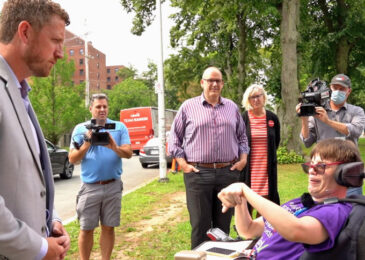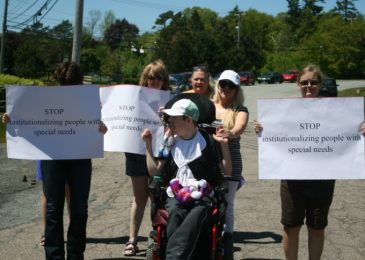Province House rally calls on politicians to commit to equality for people with disabilities
“There is no justice without disability justice.” Some 100 people gathered at Province House earlier today to remind the government (and voters) that the Liberal government did not meet its commitment to stop warehousing people who live with physical or developmental disabilities in institutionalized settings.










